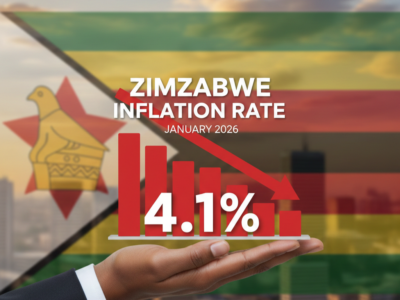The government is no longer just making promises about digital transformation, it is making visible, measurable progress. Through deliberate investments, modern policy frameworks, and an inclusive development strategy, the country is shaping a future where technology is not just the preserve of a few but a national tool for empowerment.
At the core of this vision is the Smart Zimbabwe 2030 Master Plan, which sets out to integrate ICTs across all critical sectors from agriculture and education to health, governance, and commerce. The strategy aims to reposition Zimbabwe as a digitally enabled, upper-middle-income economy by the end of this decade.
Supporting that ambition is the National ICT Policy (2022–2027), which lays the groundwork for digital infrastructure expansion, digital skills development, and innovation-driven entrepreneurship. Rather than relying solely on theoretical blueprints, Zimbabwe is executing and the results are showing.
By Ruvarashe Gora
Tomorrow, POTRAZ will take another major step by issuing data controller licenses under the Cyber and Data Protection Act. This move strengthens the country’s digital trust framework at a time when data security, user rights, and privacy have become global concerns. It also ensures that the growing digital economy is supported by proper regulation and compliance.
Meanwhile, innovation is also reshaping how law enforcement operates. The Zimbabwe Republic Police (ZRP) has begun deploying drones over Harare to monitor and enforce traffic laws. These drones, combined with AI-powered number plate recognition systems, will identify traffic offenders, link them to the national vehicle registry, and issue tickets electronically. This reduces human interference and increases transparency a clear shift toward data-driven governance.
Beyond infrastructure and enforcement, Zimbabwe’s digital growth strategy places strong emphasis on social inclusion. Government-led programs are actively narrowing the gender digital divide by creating safe spaces for women and girls in technology. Targeted training, mentorship, and investments in Girls in ICT initiatives are helping to ensure that digital transformation uplifts every Zimbabwean not just those in urban centres.
Even within government itself, reform is underway. Public servants are now undergoing mandatory digital literacy certification under a national agreement with the Computer Society of Zimbabwe. This push to train civil servants in basic and intermediate ICT skills is making public services more efficient and more aligned with the realities of a digital age.
This momentum is not accidental, it is built on planning, prioritization, and partnerships. What stands out is Zimbabwe’s effort to build not just a digital economy, but an inclusive one. A digital economy where farmers in Mashonaland can access climate data on their phones. Where girls in Tsholotsho are learning to code. Where clinics in Chimanimani are receiving remote medical support. And where a small business owner in Gweru can register their company or pay taxes online.
Challenges remain including internet affordability, cyber readiness, and tech financing gaps for start-ups. But what is unfolding is unmistakable: Zimbabwe is no longer reacting to digital trends, it is shaping them.














Comments